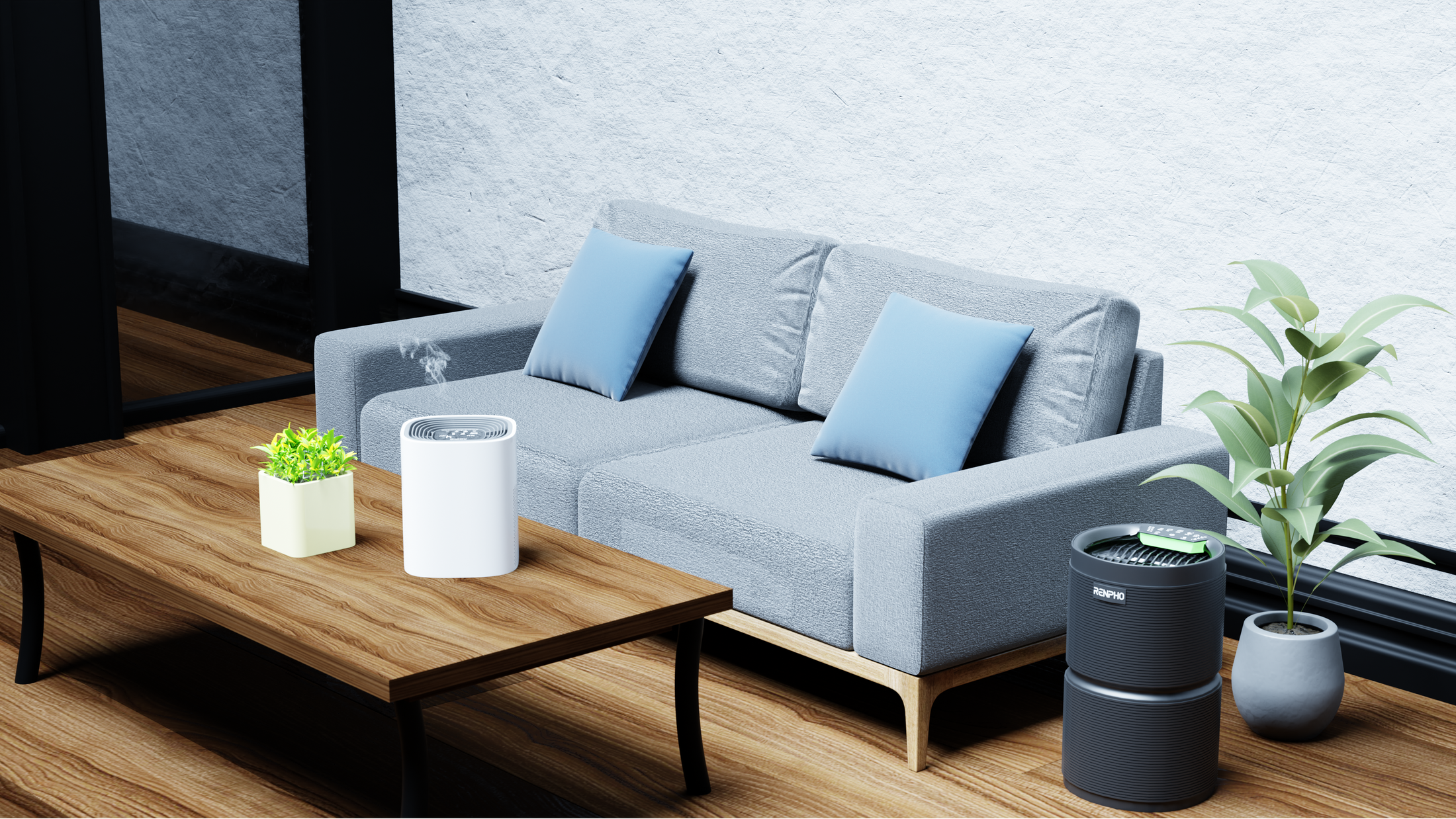Tired of sweltering summer days and in search of innovative ways to keep your space cool? Don't worry! In this blog, we're diving into the intriguing world of air purifiers and their potential to provide a refreshing respite from the heat. But here's the burning question: Can air purifiers truly cool your space? Today, we'll unravel the answer to this enigma, exploring the cooling mechanisms of air purifiers and comparing their effectiveness to traditional cooling appliances like air conditioning and dehumidifiers.
So, if you're eager to discover whether air purifiers hold the key to beating the heat, join us as we separate the facts from the hype and uncover the truth about their ability to create a cooler indoor environment. Keep reading to find out if air purifiers are the secret weapon you've been searching for.
How Do Air Purifiers Work?

Air purifiers work by using a fan to draw in air from the surrounding environment. As the air is pulled in, it passes through a series of filters designed to trap contaminants such as dust, pollen, pet dander, and smoke. The most effective type of filter for removing common household allergens and pollutants is the HEPA filter, capable of capturing particles as small as 0.3 microns, making them effective at removing smoke, odors, and other harmful airborne particles.
Aside from HEPA, there are other different types of filters, such as activated carbon filters and UV-C light filters, which can also be used to target specific contaminants. Activated carbon filters are effective at removing odors and volatile organic compounds (VOCs), while UV-C light filters can help to eliminate bacteria and viruses.
Once the contaminants are trapped, the purified air is then circulated back into the room, providing cleaner and healthier air for occupants. In summary, air purifiers use fans to draw in air, utilize HEPA filters to remove pollutants and allergens, and employ different types of filters to target specific contaminants.
How Do Air Conditioners Work?

Air conditioners work by removing heat and moisture from the air in a space, resulting in cooler and drier air. The process starts with the evaporator coil, where the refrigerant in the system absorbs heat from the indoor air. The warm refrigerant then moves to the compressor, which increases its temperature and pressure.
The refrigerant then travels to the condenser, located outside the building, where it releases the heat into the outdoor air. As the refrigerant cools down, it returns to a liquid state and flows back to the evaporator coil to repeat the cycle. This continuous process creates a constant flow of cool air inside the building.
Central air conditioning systems use ducts to distribute cooled air throughout a building, while window units and portable air conditioners are standalone units that can be placed in individual rooms. These units use the same basic principles of evaporator coils, compressors, condensers, and refrigerants to cool the air, but they differ in how they are installed and sized for different cooling needs.
How Do Dehumidifiers Work?

Dehumidifiers work by removing excess moisture from the air, improving air quality and reducing humidity levels. The main components of a dehumidifier include a fan, a compressor, a cooling coil, and a reservoir to collect the extracted water.
Two primary types of dehumidifiers exist: refrigerant and desiccant. Refrigerant dehumidifiers work by drawing in moist air, cooling it to condense the moisture, and then reheating the air before releasing it. Desiccant dehumidifiers use a drying agent to absorb moisture from the air before releasing it back into the room.
Using a dehumidifier in a residential or commercial setting can prevent mold and mildew growth, reduce musty odors, and improve overall air quality. When choosing a dehumidifier, it's important to consider factors such as capacity, energy efficiency, and maintenance requirements. Higher-capacity dehumidifiers are suitable for larger spaces, while energy-efficient models can help reduce electricity costs. Regular maintenance, such as cleaning and emptying the reservoir, is essential for optimal performance.
Air Purifiers vs Air Conditioning vs Dehumidifiers for Room Cooling
Choosing between air purifiers, air conditioning, and dehumidifiers for room cooling shouldn’t be difficult. Each serves different purposes in cooling a room and improving air quality.
Air purifiers primarily work to clean and purify the air by removing contaminants such as dust, allergens, and pollutants. While they may have a minor impact on air temperature, their main function is to improve air quality rather than cool the room.
Air conditioning systems are designed specifically to lower the temperature of a room by removing heat and moisture from the air. They regulate temperature and humidity levels, making them effective for cooling indoor spaces.
Dehumidifiers, on the other hand, focus solely on reducing humidity levels in the air. By removing excess moisture, they can help cool a room to some extent, but their primary function is to improve comfort and air quality by preventing mold and mildew growth.
So, if you’re wondering if air purifiers are the better choice, they do not have the capability to actively cool a room, as they are not equipped with refrigeration systems or the ability to remove heat from the air. Therefore, they are not as effective for temperature control as air conditioning and dehumidifiers.
Takeaway
While air purifiers are excellent for improving air quality by removing contaminants, they are not designed to actively cool a space like air conditioning systems or dehumidifiers. Their main purpose is to purify the air, not to lower the temperature. If you're specifically looking for effective cooling solutions, air conditioning units and dehumidifiers are better options to consider.
Air conditioning systems work by removing heat and moisture from the air, resulting in cooler indoor temperatures. They are specifically designed to regulate temperature and humidity levels, providing effective cooling for larger spaces. On the other hand, dehumidifiers focus on reducing humidity levels, which can create a more comfortable environment and indirectly contribute to a cooler feeling.
When choosing between air purifiers, air conditioning, and dehumidifiers for room cooling, it's important to consider your specific needs. If air quality improvement is your primary concern, air purifiers are a great choice. However, if you're seeking significant temperature reduction, air conditioning units or dehumidifiers will be more effective.
Ultimately, it's crucial to understand the capabilities and limitations of each appliance to make an informed decision based on your specific requirements. Remember to consider factors such as room size, climate, and personal preferences when selecting the right cooling solution for your space.
Renpho Health Tips
-

Breathe Your Way to Well-Being: The Science and Practice of Breathing Techniques
January 10, 2024
Read more >
-

Air Purifiers vs. Humidifiers: Which One is Right for You?
January 5, 2024
Read more >
-

RENPHO's Guide to Decluttering and Organizing Your Home
December 27, 2023
Read more >
-

How to Hygge Your Home: A Guide to Creating a Cozy and Relaxing Atmosphere
December 6, 2023
Read more >
-

Breathe Better and Explore the World of Air-Purifying Plants
November 22, 2023
Read more >




































